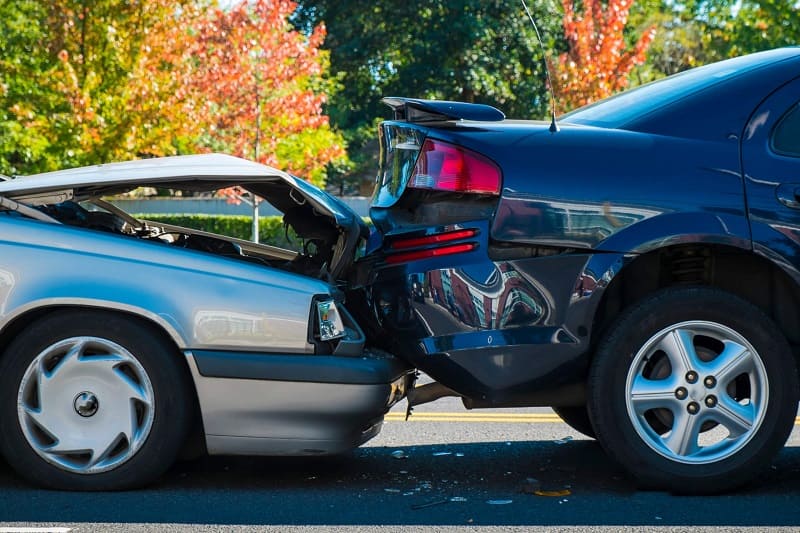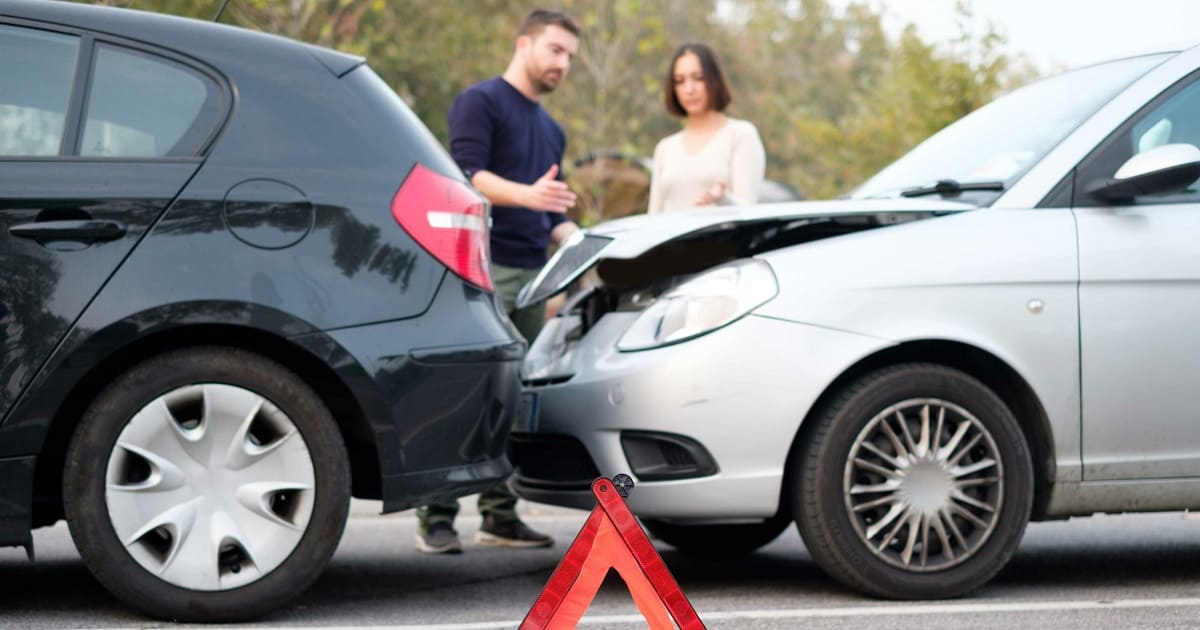Motor vehicle accidents continue to be a pressing concern! According to NHTSA, over 36,000 lives were lost in traffic-related incidents in the United States.
Determining fault in a vehicle accident can be a complex and challenging process! But it is crucial for insurance claims and legal matters.
ADVERTISEMENT
This comprehensive guide will help you understand the factors that determine fault! What happened for the vehicle to crash? And the role of a vehicle accident lawyer in navigating these situations.
Common Causes of Motor Vehicle Accidents
Knowing the common causes of motor vehicle accidents is vital for promoting safer driving habits. It helps in reducing the frequency of such incidents. By being aware of these contributing factors, drivers can make more informed decisions on the road. You can take precautions to minimize the risk of collisions.
Distracted Driving
Distracted driving is one of the leading causes of motor vehicle accidents. Activities such as texting, eating, or adjusting the radio while driving classify as distractions. The NHTSA reported that in 2019, distracted driving claimed over 3,000 lives in the United States.
Driving Over The Speed Limit
Speeding is another significant cause of motor vehicle accidents! Speed reduces the time drivers have to react to unexpected situations! It also increases the severity of collisions. The NHTSA says that nearly 30% of all traffic-related fatalities in the United States involve speeding.
ADVERTISEMENT
Alcohol-Impaired Driving
Alcohol-impaired driving is a major contributor to motor vehicle accidents. The CDC states that 28 people in the United States die every day due to alcohol-impaired driving crashes.
Weather Conditions
Weather like rain, snow, fog, or ice, can contribute to motor vehicle accidents. It reduces visibility and makes roads slippery. Drivers must exercise caution and adapt their driving behavior to the prevailing conditions.

Poor Road Conditions
Poor road conditions can cause accidents if drivers fail to navigate these hazards safely. To safely navigate poor road conditions, drivers should maintain a safe speed.
Then increase their following distance and stay vigilant for potential hazards. Reporting road issues to local authorities can also help expedite repairs and reduce the risk of accidents for all road users. Poor road conditions can be potholes, uneven surfaces, and debris on the road.
Driver Fatigue
Driver fatigue is another common cause of motor vehicle accidents. This is particularly true among long-haul truck drivers and individuals who work irregular hours. Fatigue impairs a driver’s ability to concentrate! It slows reaction times and can even lead to falling asleep at the wheel.
Aggressive Driving
Aggressive driving behaviors can significantly increase the likelihood of accidents. These includes tailgating, weaving in and out of traffic, and excessive lane changes.
ADVERTISEMENT
Drivers should be aware of these common causes and adopt responsible driving practices. Individuals can contribute to reducing the frequency and severity of motor vehicle accidents on the roads by doing so.

Identifying Fault in a Vehicle Accident
Determining fault in a vehicle accident is crucial in legal and insurance-related matters. The process of identifying fault involves analyzing various factors! Things like police reports and traffic law violations. Also, including eyewitness accounts and vehicle damage.
Understanding The Concept of Fault
Fault in a vehicle accident refers to the degree of responsibility to each driver. It is essential to determine fault! This helps to establish which party or parties should be held liable. Liability applies to damages and injuries sustained during the accident.
Legal Basis for Determining Fault
Determining fault in a vehicle accident generally follows the legal principles of negligence. This involves a duty of care, breach of duty, causation, and resulting damages. The party found to be negligent is considered at fault and may be held responsible for compensating the other party.
ADVERTISEMENT
Factors Used to Determine Fault in a Car Crash
A multitude of factors come into play when determining fault in a car crash! Each factor provides crucial insights into the circumstances leading up to the collision.
These factors include police reports, traffic law violations, vehicle damage, and witness statements. They contribute to painting a comprehensive picture of the accident.
Analyzing these elements means legal professionals can make informed decisions about fault. Ultimately, helping to ensure that the responsible party is held accountable for their actions. There are plenty of extra resources on this!

Police Reports
The police report is a crucial piece of evidence in determining fault in a car crash. Officers will typically start by investigating the scene. Then they interview witnesses, and record their findings in the report. This may include an assessment of fault. Insurance adjusters and vehicle accident lawyers will then make an assessment.
ADVERTISEMENT
The police report can help find any traffic law violations committed by the drivers. This can further support the determination of fault. The report may also provide insight into road conditions and other external factors.
Traffic Laws
Violations of traffic laws include things like speeding or running a red light. Also, driving under the influence, these can be strong indicators of fault in a car crash. A driver who breaks traffic laws and subsequently causes an accident may be found to be at fault.
It is important to note that not all traffic law violations will result in a driver being considered at fault. However, these violations can weigh heavily in the overall assessment.
The severity and nature of the violation can impact the degree of fault. This can potentially influence the compensation awarded.
ADVERTISEMENT
Vehicle Damage
Examining the damage to the vehicles involved in an accident can help investigators determine fault. The location and severity of the damage may indicate which driver was responsible for the crash. By analyzing the points of impact, investigators can reconstruct the events leading up to the collision.
Reconstruction can be crucial in establishing fault.
The extent of the damage can provide insight into the speed and force involved. This will help to shed light on potential negligence or recklessness on the part of the driver.
Witness Statements
Witnesses can provide valuable insights into the events leading up to the accident. Their statements can help establish how the accident occurred and may be instrumental in determining fault. Witness testimony can corroborate or contradict the accounts provided by the drivers involved. The goal? Revealing inconsistencies or supporting one party’s version of events.
ADVERTISEMENT
It is important to gather witness statements promptly after an accident, as memories can fade over time and crucial details may be lost.
Multiple witness accounts can help to paint a more accurate and comprehensive picture of the incident. Statements contribute directly to a fair determination of fault.

Types of Fault Systems
There are two primary fault systems used to determine responsibility in motor vehicle accidents! These are comparative fault and contributory negligence.
Comparative Fault
Under a comparative fault system, each driver’s degree of responsibility for the accident is assessed. Damages are then awarded based on the percentage of fault attributed to each party. In this system, a driver found to be partially at fault can still recover some compensation. Comparative fault systems can be further categorized as pure or modified.
ADVERTISEMENT
In a pure comparative fault system, a driver can recover damages even if they are found to be 99% at fault. Whereas, in a modified system, a driver’s ability to recover damages may be limited if their fault reaches a certain threshold, typically 50% or 51%.
Contributory Negligence
In states that follow contributory negligence system, a driver who is even slightly at fault for an accident may not be able to recover damages. This system can be harsh, as a driver who is found to be only minimally responsible may be denied compensation altogether.
The idea behind contributory negligence is that drivers should not benefit from their own negligence. This is regardless of how minor it may be. Critics argue that this system can lead to unjust outcomes! This shows in cases where one party’s negligence far outweighs the other’s.
As a result, few jurisdictions continue to adhere to this strict approach. Most opt for comparative fault systems instead.
ADVERTISEMENT
The Role of a Vehicle Accident Lawyer
A vehicle accident lawyer serves as an invaluable ally in navigating the complex world of motor vehicle accident cases. They offer expert guidance and representation throughout the process.
They aid in assessing fault to negotiating with insurance companies and advocating for clients in court. These legal professionals play a multifaceted role in helping accident victims achieve results.
Let’s explore the various ways a lawyer can support and protect the interests of those involved in motor vehicle accidents! How they ensure drivers receive the compensation they deserve.
Assessing Fault in Vehicle Accidents
A vehicle accident lawyer can help you assess fault in a vehicle accident by examining the available evidence. This evidence can be items such as police reports, traffic laws, and witness statements. They can also help you understand the applicable fault system in your jurisdiction and how it might impact your case.
ADVERTISEMENT
Negotiating With Insurance Companies
Insurance adjusters may try to minimize their financial liability by disputing fault in a car crash. A vehicle accident lawyer can negotiate with insurance companies on your behalf. They do this to ensure that fault is accurately determined and you receive fair compensation for your injuries and damages.
Representing Your Interests in Court
If your case goes to court, a vehicle accident lawyer can represent your interests. They will present evidence to support your claim. They can help you navigate the complex legal process. Your lawyer should always advocate for a favorable outcome.
How Insurance Companies Determine Fault
Insurance companies play a critical role in determining fault and settling claims after an accident. The process used by insurers to assess fault typically involves investigation and evaluation. They look at various factors related to the accident.
First, insurance adjusters will gather essential information! Items such as police reports and photographs of the accident scene. Also, statements from the drivers involved, passengers, and witnesses.
ADVERTISEMENT
These sources of information provide valuable insight into the circumstances surrounding the accident. They can help identify traffic law violations or other contributing factors.
Next, insurance companies will consider the applicable traffic laws and regulations. As well as any potential negligence on the part of the drivers involved. For example, if one driver was speeding or ran a red light, this may be seen as a clear indication of fault. In some cases, both drivers may have contributed to the accident, and the insurance companies will need to assess the degree of fault for each party.
The insurance adjusters may also consult with experts! Accident reconstruction specialists can help to determine the sequence of events. This can provide a more accurate understanding of how the accident occurred. As well as the extent of each driver’s responsibility.
Once the fault has been determined, insurance companies will negotiate and settle claims. It’s important to remember that the process of determining fault can vary depending on the jurisdiction. Also, the specific insurance company’s policies play a role.
ADVERTISEMENT
For this reason, it is crucial to understand your insurance policy! You should consult with a vehicle accident lawyer if necessary. Do this to ensure that your rights are protected and that the fault determination process is conducted fairly.

So Whose Fault Is It?
Determining fault in a motor vehicle accident can be a complex process! It involves various factors and legal principles. Understanding the concepts of fault, negligence, and the different fault systems is crucial for anyone involved in a car crash. By carefully examining all aspects of your accident, fault will be determined!
A vehicle accident lawyer can play an essential role in assessing fault. They help with negotiating with insurance companies and representing your interests in court. Seek professional legal advice and you can ensure that your rights are protected. And you should receive the compensation you deserve for your injuries and damages.
Did you enjoy this article?
ADVERTISEMENT
We’ve got more great content in our lifestyle section, check it out now!
ADVERTISEMENT












